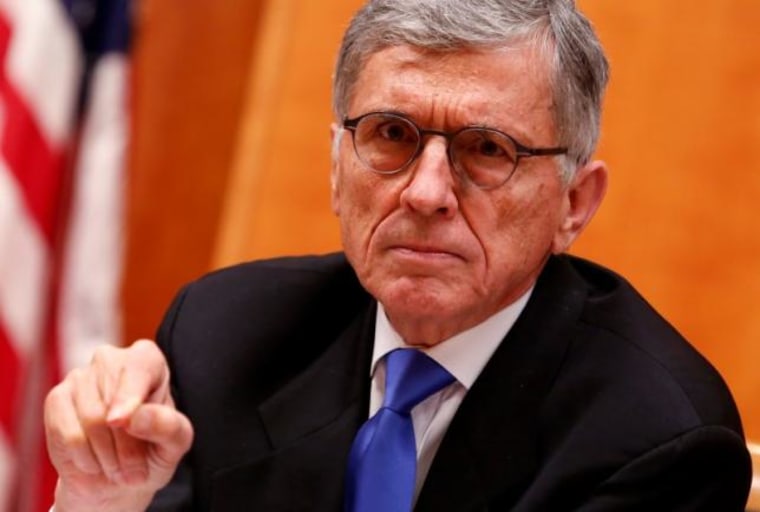Americans got hammered by 2.4 billion robocalls in June — or 10 for every man, woman, or child old enough to answer the phone. “It’s completely out of control,” said Alex Quilici, CEO of YouMail, a call management company that tracks the problem.
Based on YouMail’s data, only 10 percent of the prerecorded, auto-dialed calls are legal and wanted by the recipient, such as calls about flight delays or an upcoming doctor’s appointment.

Many telemarketing scams, from the fake IRS inspector to the bogus Microsoft tech support call, start with a robocall. Consumer Reports estimates that Americans lose about $350 million dollars a year to robocall scams.
Robocalls are not just a problem for residential customers: YouMail says small businesses waste 20 million hours a year answering and dealing with robocalls.
Robocalls are the number one consumer complaint at the Federal Communications Commission. The Federal Trade Commission received more than 1.1 million robocall complaints in just the first four months of this year.
FCC Chairman Prods the Industry Into Action
The nation’s phone companies are well aware of the ongoing robocall problem. For years, they’ve been criticized by consumer advocates and members of Congress for refusing to do anything about it.
Frustrated by their inaction, Federal Communications Commission Chairman Tom Wheeler wrote the major phone companies in mid-July to encourage them to take “immediate steps” to develop “effective blocking/filtering solutions” and provide them free to their customers.
Unwanted robocalls “are more than a mere annoyance — they are an invasion of privacy and a breeding ground for fraud and identity theft,” Wheeler wrote in his letter. He also reminded the phone companies that they are allowed to offer these services to customers who request it.
Within days, AT&T CEO Randall Stephenson responded to Wheeler by announcing the creation of an industry-wide “Robocalling Strike Force” that he would lead. The strike force will “accelerate the development and adoption of new tools and solutions to abate the proliferation of robocalls and make recommendations to the FCC on the role government can play in this battle,” according to the AT&T Public Policy Blog.
Wheeler said he was “gratified” by AT&T’s response. In his statement he called on the industry to “join the effort and to produce conclusions within 60 days.”
Consumer advocate Tim Marvin remains skeptical. Marvin runs the End Robocalls campaign for Consumers Union, the advocacy arm of Consumer Reports. More than 630,000 people have signed CU’s online petition calling on the nation’s phone companies to develop technology to stop illegal robocalls.
“A strike force sounds impressive, but so far we haven’t seen any details about what they plan to do or how they’re going to give people some relief,” Marvin told NBC News. “And right now, after a year of this end robocalls campaign, consumers need more than promises from the phone companies about future solutions somewhere down the road. We just don’t understand, what’s the holdup here?”
It’s a Complicated Problem
Blocking robocalls isn’t a simple task, especially with the volume of calls the major phone companies handle each day. They need to make sure they catch the bad without stopping calls from grandma or the kids from getting through.
And scammers who make robocalls use a variety of tricks to get past call screening technology.
They can “spoof” their number so that it shows up on Caller ID as a known or trusted caller, such as your bank, credit card company, local police department — or even the IRS. The largest number of spoofed robocalls spotted by YouMail in June appeared to be coming from Capital One.
“To effectively stem the tide of these calls, the communications industry — network providers, handset makers and device OS developers alike — must work together to ensure that only calls from legitimate callers and those associated with legitimate and unaltered numbers are sent to consumer phones,” AT&T said in a blog post.
The wireless industry seems ready to take part in the new effort.
Read More: Google Wants to Thwart Those Annoying Robocalls
“Unwanted calls and texts are a consumer issue the wireless industry works hard to address, and we look forward to working with the FCC to help address this challenge together,” said Tom Power, senior vice president and general counsel at CTIA, the wireless industry’s non-profit trade group.
The ultimate goal: Find a way to block these calls before your phone ever rings — without stopping calls you really want. New caller ID verification standards, now in the works, should help.
The industry strike force says it hopes to stop spoofed robocalls coming from other countries — a major problem — by creating a “Do Not Originate” list. The list would have the numbers of frequently spoofed government agencies and private companies. Screening technology could catch and block any calls dialed from outside the U.S. using those numbers. In other words, it’s a pretty safe bet that the IRS won’t be making calls from Nigeria or India.
Aaron Foss created the popular Nomorobo call-blocking service for VoIP telephone lines. In less than three years, he’s blocked 118 million robocalls. He’s pleased that the phone companies finally seem willing to do something.
Since Nomorobo’s launch in October 2013, Foss has tried to make his free service available on traditional landline service, but the big phone companies would not work with him.
Foss calls the Do Not Originate list “a cool idea” that should cut down on scammers making robocalls from overseas.
”Robocalls are not going to magically disappear overnight because of this, but it’s a huge win for consumers,” Foss told NBC News.
What You Can Do Right Now
A variety of apps and services — many of them free — make it possible to cut down on unwanted calls on some landline and mobile phones (both Android and iOS). They work by blocking them, alerting you to a possible robocall or forwarding suspicious calls to voicemail.
Remember: Never respond to a robocall. Don’t dial a number, even if the recording claims that “pressing 2” will put your number on the company’s do not call list. Scammers don’t have such a list.
This will only tell the crook’s computer that it’s reached a working phone number — and you’ll probably get more robocalls. Same thing if you call back the number. Don’t do it!
Alex Quilici, CEO of YouMail, has this tip: Don’t answer if it’s a number you don’t recognize — let it go to voicemail.
“If everyone started doing that it would destroy the economics of robocalling because they count on a certain percentage of the calls they make being answered,” Quilici said. “So, just stop answering calls you don’t recognize.”
The Federal Trade Commission just released a tip sheet on reducing unwanted calls. CTIA, the wireless industry association, has a list of apps that block robocalls organized by operating system.
Herb Weisbaum is The ConsumerMan. Follow him on Facebook and Twitter or visit The ConsumerMan website.
